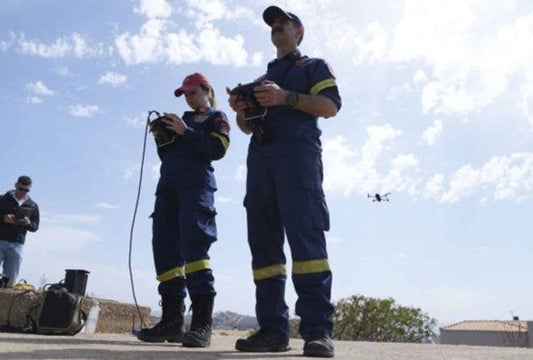
The Chinese high-energy lithium battery-powered six-rotor unmanned aerial vehicle successfully completed its test flight in Mohe.
Share
According to the news from the Dalian Institute of Chemical Physics of the Chinese Academy of Sciences, the ultra-low temperature high specific energy lithium battery developed by the team led by researcher Chen Zhongwei from the Power Battery and System Research Department (DNL29) of the institute has been successfully tested for flight on a six-rotor unmanned aerial vehicle (UAV) in the extremely cold environment of Mohe, where the temperature is minus 36 degrees Celsius. This power supply is expected to provide power support for polar scientific expeditions, border patrol, disaster rescue, logistics transportation, etc.
It is introduced that during the test flight, the six-rotor UAV equipped with the high specific energy lithium battery maintained a stable flight posture and met the range requirements in the extremely low temperature environment; it completed multiple flight tests such as rapid startup, high-altitude hovering and complex path cruising; the voltage output during the entire flight was stable, and no power fluctuations or sudden power outages caused by the extremely low temperature were observed, fully verifying its adaptability and reliability to low temperatures.
IT News has learned from the Dalian Institute of Chemical Physics of the Chinese Academy of Sciences that Chen Zhongwei's team, in an effort to overcome the problem of performance degradation of lithium batteries in ultra-low temperature environments, has significantly expanded the working temperature range of the batteries through innovative electrolyte formulations and modification technologies for anode materials, ensuring stable power output within the extreme temperature range of -40℃ to 50℃.
Furthermore, the team has addressed the pain point of "range reduction" in extremely cold environments through adaptive thermal management technology and low-temperature impedance optimization design. As a result, the range degradation rate of the battery in a -40℃ low-temperature environment is controlled to be less than 10% of that in normal temperature conditions, which is much lower than the industry average (typically ranging from 30% to 50% degradation). This enables the unmanned aerial vehicle to perform tasks in low-temperature areas such as the polar regions and high altitudes without frequent return flights due to significant range reduction, thereby enhancing operational efficiency.
The ultra-low temperature high specific energy lithium battery has been successfully tested for flight on a six-rotor unmanned aerial vehicle (UAV) in extremely cold conditions, marking a new breakthrough in the technology of high-performance UAV power batteries. The Dalian Institute of Chemical Physics of the Chinese Academy of Sciences stated that the team will further optimize the battery performance and promote its application in more extreme environment-equipped UAVs.




